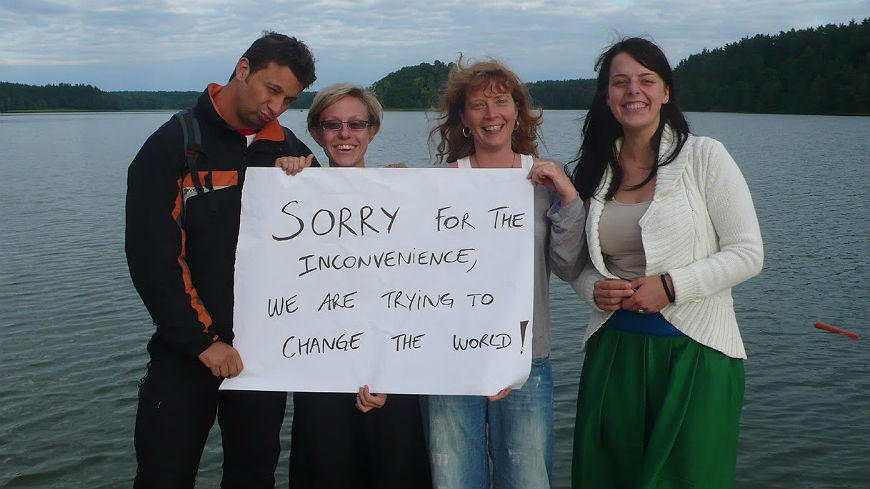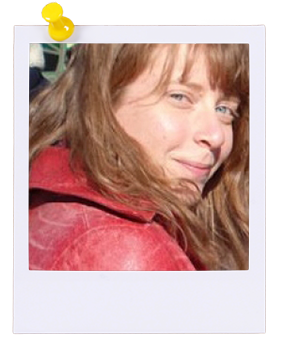12 Action Days of ENTER!
by Véronique Bertolle
04/12/2019
How can youth organisations put the Enter! recommendations into practice? Véronique gives concrete examples from the members of Y-E-N.
The Enter! recommendation was adopted by the Committee of Ministers in 2015. It was initiated by the long-term training course (LTTC) participants, young people and youth workers. Youth Express Network (Y-E-N) was part of the steering group of this Enter! LTTC. Knowing that it took four years to adopt the recommendation, that it is not binding and that member states of the Council of Europe can decide to implement it or not, to implement it partly or not to report about it, we at Y-E-N have realised that it is very much in our hands (civil society) to use it and actively promote it.
1 entire year / 1 month / 1 recommendation / 1 action (online or offline).
This is how we, in Youth Express Network, did it!
Youth Express Network (Y-E-N) is a non-governmental, not-for-profit organisation of 32 members in 22 countries across the European continent.
Together we work on social inclusion of young people and strive to achieve our vision: “An inclusive society for young people, a society where young people, their needs and participation are recognised, valued and appreciated.
Y-E-N means Youth Express Network.
“Express” has two meanings:
- Express yourself because we in Y-E-N believe that youth have a lot of valuable things to express, to say about social issues today;
- But express also means quickly. The idea is that if we want social change, then we can’t wait for tomorrow, we have to start here and now.
In 2018, as a way to celebrate our 25th anniversary and 25 years of successfully working towards youth inclusion, we used the Enter! recommendation as a tool for advocacy on access to social rights for young people. Our #12actions project aimed at dedicating each month to one of the Enter! recommendations by doing, initiating or communicating in various ways to implement these recommendations and, by doing so, contribute to a better access of social rights for young people.
 January: ACTION DAY #1: Your voice matters!
January: ACTION DAY #1: Your voice matters!
Enter! recommendation #1: Promoting meaningful participation opportunities in the planning and management of their living environment
2017 gave us a taste of structured dialogue (with our KA3 project “TOG(AE)THER Europe”), but in 2018 we wanted to take it a step further. As part of the European Working Group on structured dialogue with young people, Youth Express Network ran an online consultation to find out what matters to young people and to give them space to have a direct say in the future of the EU youth policies and the EU Youth Strategy 2019+.
 February: ACTION DAY #2: Think healthy!
February: ACTION DAY #2: Think healthy!
Enter! recommendation #2: Promoting healthy lifestyle
We asked our Azerbaijani member organisation Common Sense Youth Organisation (CSYO) to be part of this challenge!
CSYO has been involved in awareness campaigns on the risks of smoking for years now, a cause that has more recently been addressed by the Azerbaijani Government which passed a law against smoking in public spaces. For these reasons, CSYO made their Action Day a Movie Day, and invited their Young People to a projection and debate around the film “Thank You for Smoking”, a satirical comedy on the tobacco lobby.
 March : ACTION DAY #3: It’s in the works!
March : ACTION DAY #3: It’s in the works!
Enter! recommendation #3: Employment and occupation
2011-2012: You(th) are the Champions!
A few years ago, Y-E-N implemented a multi-measure project called “You(th) are the Champions: Strategies for youth employment” aiming at changing the situation of youth employment in Europe. The project gathered 153 participants, representing 22 partners organisations from 15 different countries. This project had beautiful results: the European Youth Forum, the Organisation for Economic Co-operation and Development (OECD) and the International Labour Organization (ILO) recognised this project as a best practice.
2018-2019: “EntreprenEUrship for CultYOUre” (EU4YOU)
Youth Express Network and our eight partners embarked on an international project for two years. Together, we shared good practices and developed innovative complementary pathways for boosting employability of young people through social and cultural youth entrepreneurship. The project EU4YOU gathered social workers from eight different organisations coming from three continents. We created a toolkit on how to start and run a social/cultural enterprise.
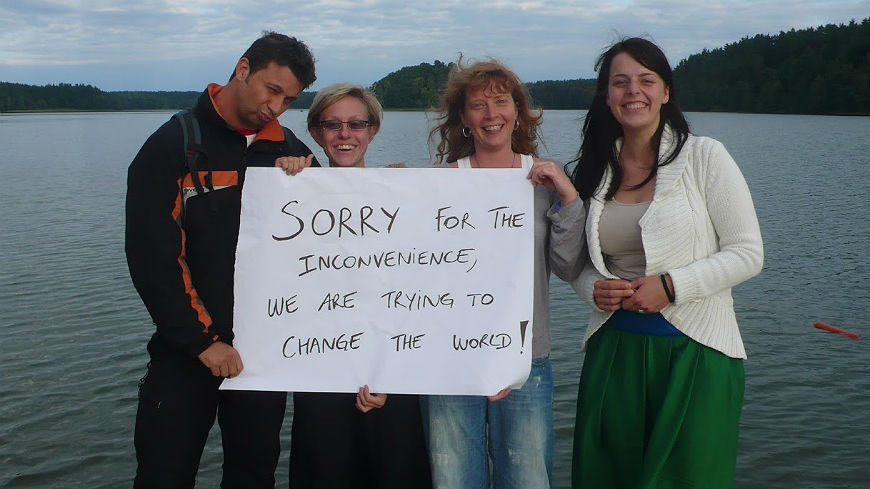
 April: ACTION DAY #4: We inform youth!
April: ACTION DAY #4: We inform youth!
Enter! recommendation #4: Information and counselling
Information is the key!
“Parcours le Monde – Grand Est (PLMGE) is a local organisation based in Nancy and Strasbourg in the Grand Est region of France. Information and counselling for young people are two of our main objectives! We develop information and promotion campaigns for the democratisation of international mobility and access for the target groups who are most excluded from it.
Our target groups are mostly young people living in sensitive neighbourhoods, in remote rural areas and without occupation and/or without a diploma, who do not believe that an experience of work, internship or volunteering abroad is made for them for several reasons (too expensive, lack of competences, no foreign language skills, etc.). Thus, we deliver collective information sessions on the different opportunities for international mobility and their access, while also tackling intercultural aspects of mobility and the valorisation of such experience in one’s CV.
After these information sessions, that is where we begin individual guidance and counselling for our target groups: building their mobility project, linguistic and intercultural preparation, etc. The guidance goes on after their departure but also after they return in order to accompany them in the valorisation of their competences and their follow-up plan.”

 May: ACTION DAY #5: The art of togetherness!
May: ACTION DAY #5: The art of togetherness!
Enter! recommendation #5: Education and training
Youth Express Network has organised several training events during the past 25 years! As a matter of fact, we did one of those in May 2018, the month dedicated to the Enter! Rec #5!
Training of trainers
The training of trainers, The Art of Togetherness, was the first activity of our work plan of 2018: “ArtSI: The Art of Social Inclusion”. It took place at the European Youth Centre of Strasbourg from 11-17 May 2018 and was supported by the European Youth Foundation of the Council of Europe.
The aim of this training was to grow and train a new generation of Y-E-N trainers and facilitators, able to make an impact on young people’s lives using artistic expression to promote empowerment, full access to social rights and a sense of togetherness.
 June: Action Day #6: Housing
June: Action Day #6: Housing
In June 2018, we decided to take a closer look at the sixth Enter! recommendation, the recommendation on housing of young people.
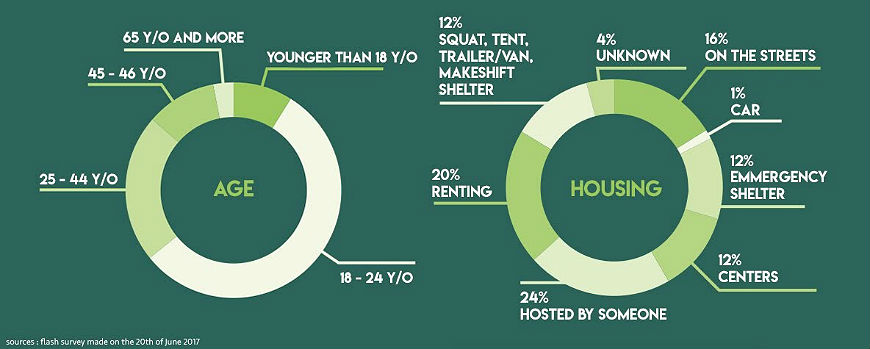
One of our French member organisations, the Association l’Étage, works every day towards the support of young people in vulnerable situations through various facilities: day care, community restaurant, provision of a postal address, access to health care, parenting support, individual support and counselling. Access to housing is one of their main activities.
The cafeteria opens all day and the community restaurant opens from 8:00 a.m. to 20:00 p.m., allowing the organisation to create and keep human contact with the beneficiaries, often homeless young people. Each year, 1 000 people come to the l’Étage for help and support.
Access to housing in numbers
Each year, the organisation implements various measures to support young people with housing:
10 “stabilisation” places: l’Étage gives individual social support and counselling to young people in remote areas;
29 places in accommodation shelters;
50 places of “renting inter-mediation”: l’Étage gives guarantees to the landlords, allowing the access of young people to a stable renting solution;
70 places for the European Resettlement Programme for Refugees: this measure is linked to the commitment of the French Government to welcome 10 000 people in the frame of the European Resettlement Programme.
Since December 2013, the organisation l’Étage has also helped families “with incomplete rights”. The Family Accommodation Centre has developed considerably since then. The Centre’s agreements have allowed the hosting and support of 518 people, including a majority of children.
 July: Action Day #7: Culture, leisure and sports
July: Action Day #7: Culture, leisure and sports
Enter! recommendation #7: Culture, leisure and sports
For July 2018, we asked our member organisations to tell us about the various measures they implement at local level to help young people access culture, leisure and sports.
The Institute for Democratic Changes, our member organisation from Georgia, implemented a Youth Exchange called The Sound of Culture. This project supported by the Erasmus+ programme aimed at deepening co-operation among young people, intercultural dialogue and encouraging the inclusion of young people with disabilities in international projects. The Youth Exchange gathered a total of 34 young people from Georgia and Estonia.
Through activities based on non-formal education, the group got to learn more on various topics such as inclusion, youth co-operation and intercultural dialogue. But another big part of the project was the sharing of culture and traditions. Throughout the nine days of the Youth Exchange, the young people got to discover the culture and traditions of the country of their fellow participants, as well as the inclusion of young people with disabilities in cultural and international youth projects. They also got to express themselves through art and finished the Youth Exchange with a public presentation of their musical numbers and theatrical performances.
 August: Action Day #8: Boosting social inclusion
August: Action Day #8: Boosting social inclusion
Enter! recommendation #8: Breaking down segregation and the promotion of social inclusion
Young people living in disadvantaged neighbourhoods often experience isolation and segregation. Measures can be implemented to ensure the access of social inclusion to young people with fewer opportunities, for example: reaching out directly to some of the most isolated and disenfranchised young people, offering them opportunities and addressing their specific needs.
In August 2018, Y-E-N organised a Youth Exchange “All Inclusive” in Poronin, Poland. Financially supported by the European Youth Foundation and the Erasmus+ programme, it was the third activity of our work plan for this year: “Art.S.I: The Art of Social Inclusion“. This Youth Exchange gathered 42 people from six different countries and eight organisations. Together, they learnt how to express themselves through art on the topic of social inclusion of migrants and refugees!
Amongst the various workshops and sessions that were facilitated through the several days of activity, the young participants had the opportunity of creating and performing a street event in order to raise awareness on social inclusion of migrants and refugees. They addressed their message of inclusion directly to the inhabitants of Krakow, through art and the various tools they learned.
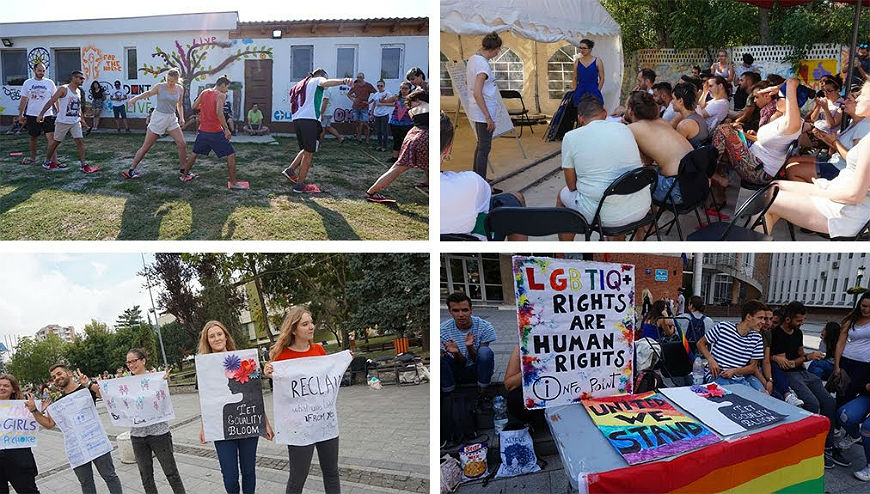
 September: Action Day #9: Preventing discrimination
September: Action Day #9: Preventing discrimination
Enter! recommendation #9: Preventing discrimination
Discrimination is a barrier to active citizenship. Many young people with fewer opportunities experience discrimination because of social prejudice and isolation. Measures promoting cohesion and positive relations between people from different backgrounds can be implemented by organisations, municipalities, governments…
Volunteering for All Association, Romania
At the beginning of September 2018, Youth Express Network took part in the Youth Exchange “Don’t be afraid to show your true colours”, organised by Volunteering for All Association in Milcoveni, Romania.
Over eight days, 40 young people coming from seven different countries gathered to work together towards fighting against LGBTIQ+ discrimination and promoting LGBTIQ+ rights. Thanks to a non-formal education-based programme, they learned more about each other’s realities and the situation of the LGBTIQ+ community in several countries of Europe. Together, they thought about solutions and ways to fight against discrimination at local level.
As a result of this work, the group had the opportunity to actively raise awareness on LGBTIQ+ rights in the city centre of Resita, Romania. The young people got to make their voices heard through various artistic and informative means such as: a dance performance, impactful posters, a live and online survey and an info point in order to give more information about the content of the referendum that took place in October 2018 (definition of family in the Romanian Constitution).
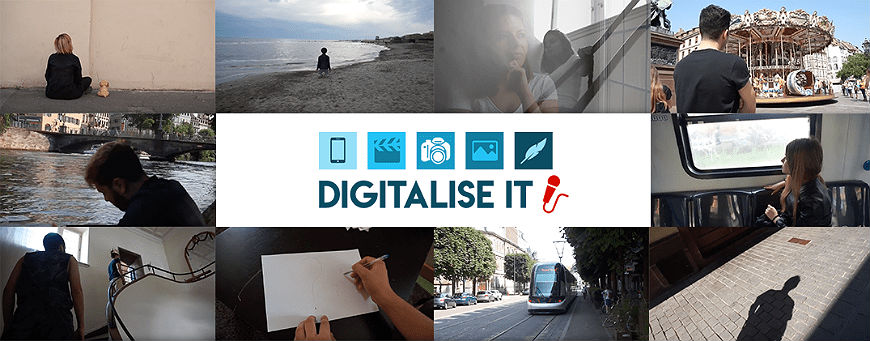
 October: Action Day #10: Supporting youth work
October: Action Day #10: Supporting youth work
Enter! recommendation #10: Supporting non-formal education
For more than 25 years now, our member organisations have been using non-formal education/learning to help young people overcome their disadvantages and become active in their communities. This form of education, although being proven efficient, is poorly recognised socially and politically.
From the list of several measures that governments and youth organisations can implement to increase the recognition and support of youth work and non-formal education/learning, here’s how we chose to implement them:
- encouraging the exchange of expertise between professionals working with young people;
- supporting youth work professionals and youth organisations that provide non-formal education/learning in the promotion of best practices.
With the strategic partnership project Digitalise It, our member organisations had the opportunity to meet other partners and learn from an expert and each other’s practices on innovative digital tools. The first training course on digital storytelling allowed youth workers from each organisation to learn techniques on digital storytelling from our expert film director, Leo Zbanke. Another phase of the project (which took place in 2019), consisted of peer learning study visits of some of the organisations to discover each other’s implementation of digital tools in the frame of youth work.
During the process, the participating NGOs also got to share their good practices with the general public. The topic, digital storytelling, allows all parties of the project to share the video results and reach, through social media, both society and responsible authorities, thus demonstrating their expertise and the impact that youth work has on young people with fewer opportunities.
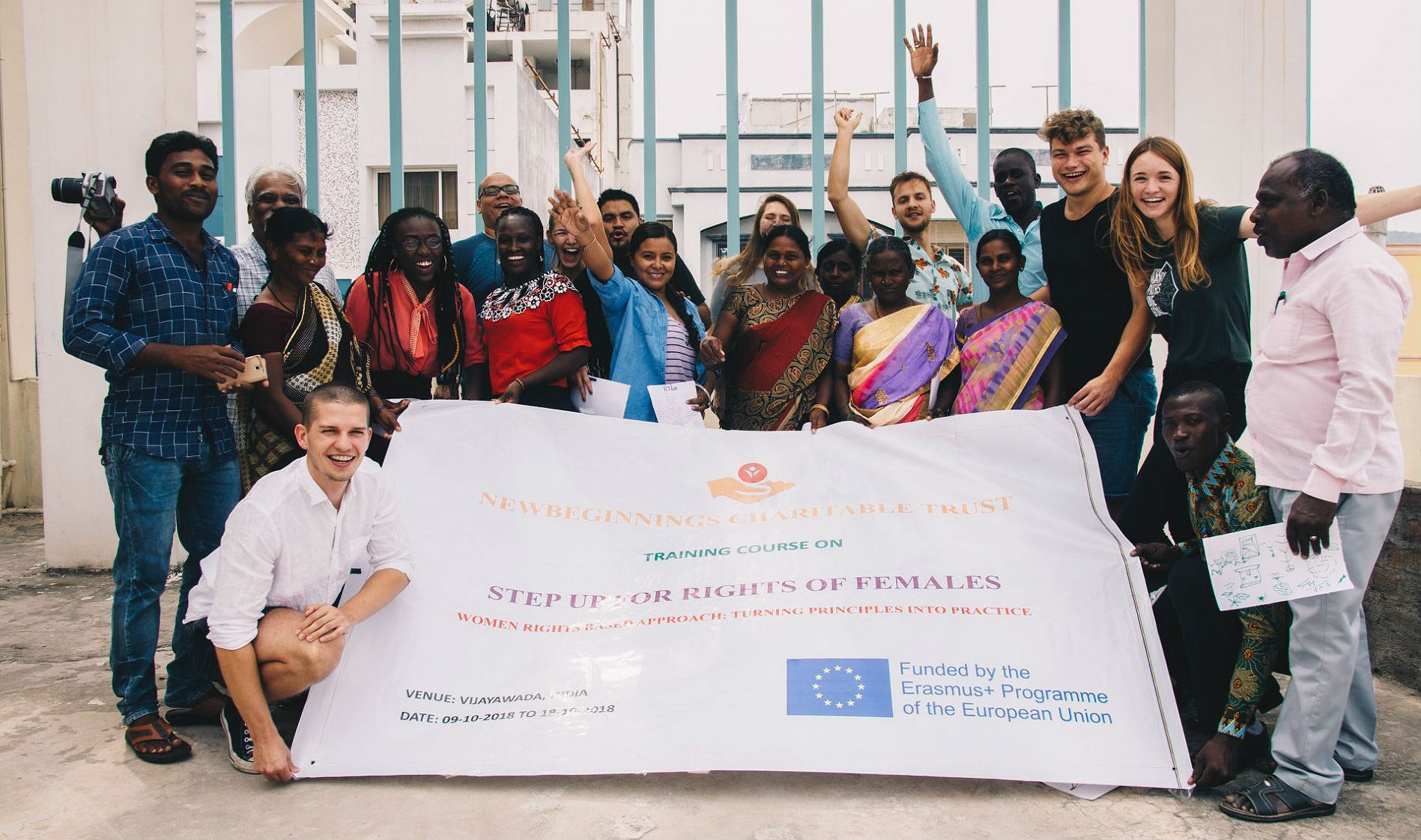
 November: Action Day #11: Promoting gender equality
November: Action Day #11: Promoting gender equality
Enter! recommendation #11: Improving gender equality
The Enter! recommendation suggests various measures allowing more access to social rights for young people from disadvantaged neighbourhoods. A part of this recommendation focuses specifically on improving gender equality of young people living in these disadvantaged neighbourhoods. To demonstrate that it CAN be done, we chose to tell about Active Youth Association, our partner organisation for Lithuania, and their project SURF: Step Up for Rights of Females.
SURF project: Empowering Women
With this project, Active Youth aimed at empowering women by boosting gender equality across communities in the participating countries/regions: Lithuania, Senegal, India and Honduras. Using a training programme on “women protection and development”, the activities gathered youth workers and young leaders from EU and partner countries for the different phases of the projects: a kick-off meeting, three job shadowings, three training courses and a final conference.
 December: Action Day #12: Preventing all forms of violence
December: Action Day #12: Preventing all forms of violence
Enter! recommendation #12: Preventing violence
Young people coming from disadvantaged neighbourhoods are often both victims and perpetrators of violence, inside and outside their homes. This violence can take various forms. It creates a climate of fear and fuels prejudice and discrimination against youth. One part of the Enter! recommendation focuses specifically on preventing all forms of violence in disadvantaged neighbourhoods.
“Youth Countering Violent Extremism”
According to our member organisation in Bosnia and Herzegovina, Proni Center for Youth Development, key problems for youth in this country are: youth passivity and isolation. As a result, young people can easily be targeted by extremist groups and movements, become radicalised through family and their local society and then transfer those radical ideas to their peers using social media. PRONI tried to tackle this issue and developed together with the Ministry of Civil Affairs of Bosnia and Herzegovina the long-term project Youth Countering Violent Extremism.
This project works directly with youth through three youth councils in Bosnia and Herzegovina and other stakeholders, to produce tools and mechanisms that will directly influence the decision makers of Bosnia and Herzegovina in order to modernise and update the legislation and respond to violent extremism challenges in the digital world. This will prevent youth from being an easy target for extremist ideas and organisations that are using the digital world (especially social media) to reach and recruit new members amongst youth.
What have we learnt from our #12actions project?
- We realised that we, Y-E-N as a network of grass-roots youth organisations, play a prominent role in the access of social rights at local and European levels: either by actively promoting or protecting youth rights.
- We learnt to adopt a rights-based approach. If we only communicate, demand or approach our governments and local authorities with a needs-based approach (“young people need jobs because they are unemployed”), we won’t get them to recognise that these issues are actually human rights issues. We have slowly learnt that we shouldn’t say “young people need jobs” but we should say “young people have a right to jobs”. It’s the same when speaking about a “young homeless person” – we actually speak about the “right to housing”.
This #12actions project was an attempt to shift our approach. We have made this switch to talk expressly about human and social rights and we hope many more young people and youth organisations in Europe will get inspired to make this shift too!

